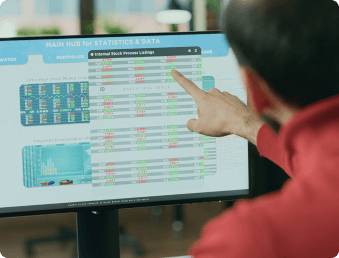Day trading, the practice of buying and selling financial instruments within the same trading day, has become a popular strategy among investors seeking quick profits. Unlike long-term investing, which involves holding assets for extended periods, day trading focuses on capitalizing on short-term market movements. In this blog, we’ll explore the key advantages of day trading and why it might be an appealing choice for some traders.

Potential for High Returns
One of the primary attractions of day trading is the potential for substantial returns. By capitalizing on small price fluctuations throughout the day, day traders can accumulate significant profits. With the right strategies and market conditions, it’s possible to generate impressive returns in a relatively short period. However, it’s essential to recognize that these opportunities come with higher risks.
Flexibility and Control
Day trading offers flexibility and control over your trading schedule. Unlike traditional jobs or long-term investing, day traders can choose their hours and trading frequency. Whether you prefer to trade a few times a day or engage in multiple trades, the control is entirely in your hands. This flexibility allows traders to balance their trading activities with other personal or professional commitments.

Immediate Feedback and Learning
In day trading, you receive immediate feedback on your trades since positions are opened and closed within the same day. This rapid feedback loop enables you to learn quickly from both successes and mistakes. By analyzing each trade, you can refine your strategies and improve your trading skills more efficiently compared to longer-term investing.
No Overnight Risk
Day traders avoid the overnight risk associated with holding positions for extended periods. By closing all positions before the market closes, day traders eliminate the exposure to potential price gaps or market news that can occur overnight. This can be particularly advantageous in volatile markets where unexpected events might significantly impact asset prices.
Leverage Opportunities
Many day trading platforms offer leverage, which allows traders to control larger positions with a smaller amount of capital. While leverage can amplify potential profits, it also increases risk, so it’s crucial to use it judiciously. Proper risk management strategies and understanding leverage are essential for successful day trading.
Diverse Trading Instruments
Day traders have access to a wide range of financial instruments, including stocks, forex, commodities, and cryptocurrencies. This diversity provides numerous opportunities to find trading setups and strategies that align with market conditions and individual preferences. The ability to trade across various asset classes can enhance trading opportunities and flexibility.
High Liquidity
Day trading typically focuses on highly liquid markets where assets are traded in large volumes. High liquidity ensures that trades can be executed quickly and at favorable prices. This liquidity is crucial for day traders who rely on rapid execution and minimal slippage to capitalize on short-term price movements.
Low Transaction Costs
Advancements in technology and the rise of online trading platforms have reduced transaction costs for day traders. Many brokers offer competitive commissions and fees, making it more cost-effective to execute frequent trades. Lower transaction costs can help maximize profitability, especially when engaging in high-frequency trading.
Conclusion
Day trading offers several advantages, including the potential for high returns, flexibility, and immediate feedback. The ability to avoid overnight risk, leverage opportunities, and trade diverse instruments adds to its appeal. However, it’s essential to approach day trading with a well-thought-out strategy and strong risk management practices. As with any trading approach, success in day trading requires dedication, continuous learning, and a thorough understanding of the markets.



